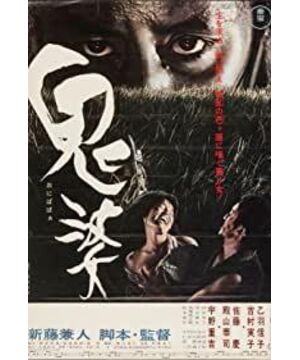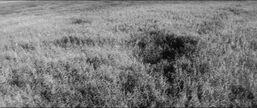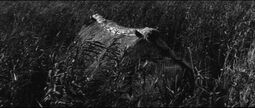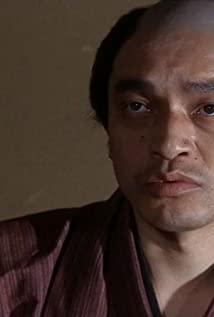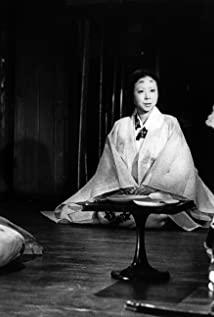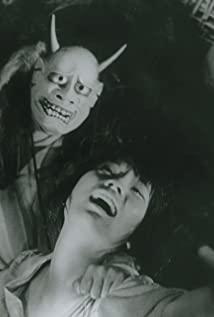Why hag?
Beasts - people - ghosts.
If it weren't for Hachiya and Rita, I really wouldn't be able to see a black and white movie from the 60s. After watching it, I still remember it for a long time.
The first 2/3 of the movie does have the problem of slow rhythm and small scenes, or characteristics, but after thinking about it, it is indeed necessary due to the needs of funding and plot development.
The hag left me with a lot of influences, such as the description of big and small intentions such as Miscanthus, black holes, masks, etc., all kinds of implication, and the director buried them through intentions.
But apart from the rich intentions, the close-up of the face and the very protagonist's music, the hag impresses me the most is the theme, which I interpret as: beast-human-ghost.
The two turning points come from two men.
Before Ah Ba appeared, the mother-in-law and the daughter-in-law were like animals, taking advantage of the fire to loot, killing people to make more money, and their life simply consisted of killing, eating and sleeping, without any guilt or shame.
Ah Ba returned alone and took aim at the young daughter-in-law. The daughter-in-law's desire burst out, and the originally balanced relationship between mother-in-law and daughter-in-law turned into a twisted threesome. In addition to survival, the mother-in-law gave birth to lust, panic, jealousy and the accompanying threats. This is a beast turned into a human.
In the middle of the night of Aba's daughter-in-law's tryst, a general wearing a mask broke into a deadlock (at the beginning of the period I thought the general was the male protagonist who just debuted, but I didn't expect it to be a deadly trick to promote the plot). His mask turned his mother-in-law from a human into a ghost. Desires go beyond the bounds, and the evil that only allows the people to light the lamps and not the state officials to set fires becomes a demon. This is a ghost.
Therefore, the hag was born, and finally got the meaning of the title.
The hag also has a very interesting character setting. To tell the truth, there are only three protagonists of the hag, the mother-in-law and the eight, and the others are all out of the way, but it does not detract from the greatness of this movie.
The three protagonists are bankrupt peasants, and the troopers killed are noble warriors and even generals. This constitutes an ironic two-way relationship.
The nobility waged war and the peasants went bankrupt. The peasants killed more people, and the samurai died tragically on the ant-like peasants.
There are very few films that do not praise the aristocracy or the commoners.
Over
View more about Onibaba reviews


